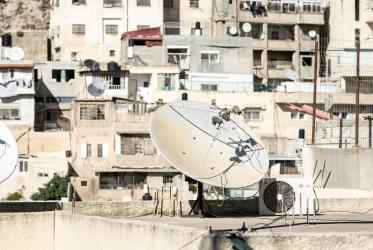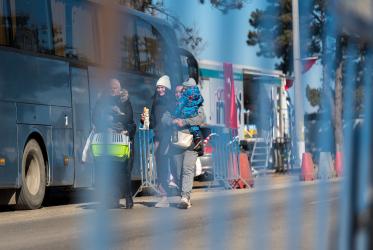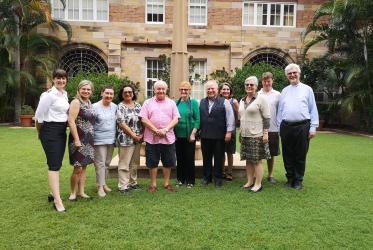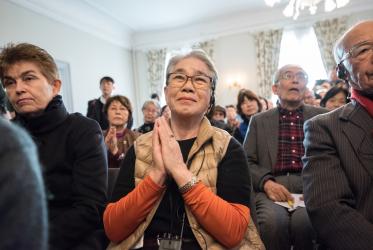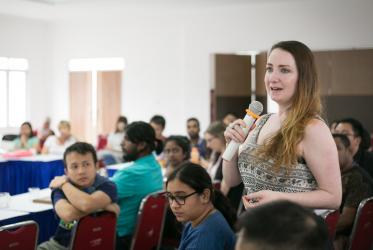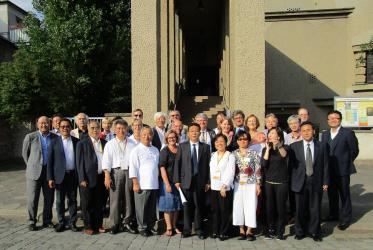Displaying 1 - 20 of 49
Webinar - “People on the Move: Solidarity and Advocacy”
12 November 2020
https://www.oikoumene.org/live
Webinar will highlight “People on the Move: Solidarity and Advocacy”
05 November 2020
Churches should use their voice on climate change
26 February 2020
Workshop addresses human rights in Australia
25 February 2020
WCC welcomes new staff
11 February 2020
WCC pressing ahead with disarmament work
28 August 2019
#WCC70: A story of how we meet together
02 February 2018
Nobel winners plan next steps for banning nuclear weapons
10 December 2017
Emily Welty: tide of hope for a world free from nuclear weapons
19 September 2017
“I can do things better back home”
30 August 2017

